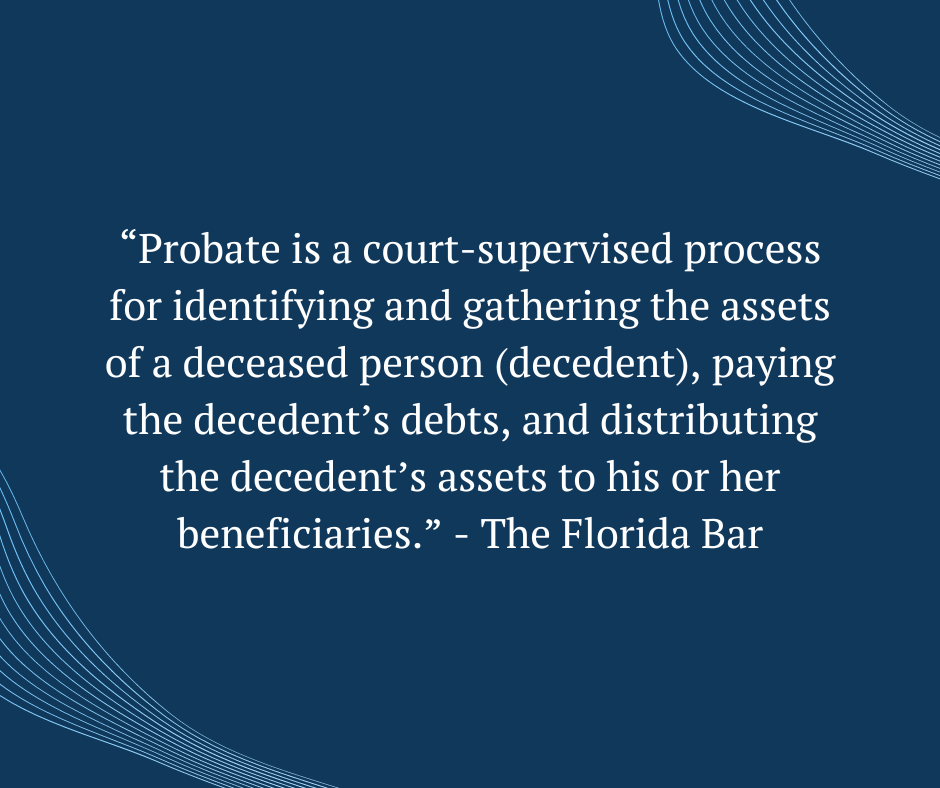When an individual passes away without a valid will, it’s known as intestacy, or dying intestate. Without a decedent’s guidance articulated in a will as to how assets will be distributed, the state’s probate court will distribute assets by what’s known as intestate succession. These laws vary by state. Here’s our guide to intestate succession laws in Florida.
Understanding Intestate Succession
Intestate succession is the group of laws that determine the order of heirs to which an intestate estate will be distributed. You’ll find them outlined in chapter 732 of the Florida statutes. Though each family dynamic is unique, the order of heirs typically follows as such:
- Spouse
- Children
- Parents
- Siblings
- Grandparents
Here are some examples of how intestate succession works: if there is a surviving spouse but no children, the entire estate would go to the spouse. If there are children of the decedent who are not lineal descendents of the surviving spouse, the spouse receives half and the children share the other half equally. If there is no surviving spouse, the children receive the entire estate. If the decedent was unmarried and did not have any children, the estate would be shared equally between their surviving father and mother, and so on.
Intestate succession may branch out beyond these connections, and there are many details in the Florida statutes covering possible family structures. For example, there are laws pertaining to adopted children or children born out of wedlock. There is a section focused on afterborn heirs – children conceived before the decedent’s death, but born after. And there are specifics for collateral heirs, who are family members not in the direct line of descent – like siblings, aunts, uncles, or cousins.
Navigating the Complexities of Probate
If your loved one has passed away and there is no will, or you think you might be an heir, it’s critical to contact a probate attorney right away. Not only will you receive professional guidance, but should you become the administrator of the estate you’ll be legally required to work with an attorney throughout the next process: probate.

Probate can be very intensive. It can take months or even years to complete, especially for complex estates – or if disputes arise. Our team has extensive experience in probate administration. We’re here to support you throughout this process, so you can focus on grieving.
Estate Planning Can Bring Peace of Mind
If you haven’t created an estate plan yet, you’re not alone. In fact, numerous studies in recent years consistently show that less than half of American adults have a will. For many, the thought of creating a will stirs up a flood of emotions. For others, it’s always something to be addressed later, or they feel they haven’t built up enough assets yet to create an estate plan.
The process of estate planning can seem overwhelming, but through it you can name a guardian for your children, a caretaker for your pets, designate how you’d like your digital accounts to be managed, and ensure your assets are distributed in a way that aligns with your legacy.
Whether you’ve recently lost a loved one or you’re seeking to avoid intestacy through estate planning, we’re here to help you take the next step. Call us for a free consultation.


